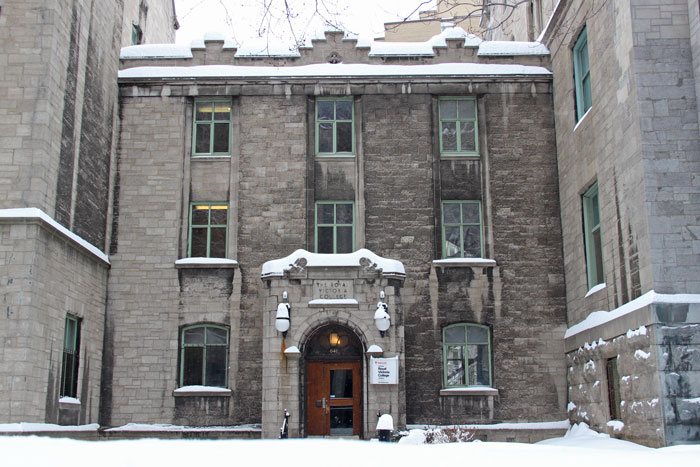On Feb. 3, McGill floor fellows filed an injunction with the Superior Court of Quebec regarding their salary dispute with the university, which the court denied on Feb. 9. An additional hearing date has been set for May 5 to more closely consider the details of the request.
Collectively, floor fellows at McGill belong to the Association of McGill University Support Employees (AMUSE) union and are referred to as AMUSE Unit B. McGill has been unyielding in its negotiations with the floor fellows, leading AMUSE Unit B to decide to take legal action.
Currently, McGill floor fellows do not receive an hourly salary. Instead, they are given room and board at McGill residences, amounting to approximately $13,500 worth of benefits per year. Quebec labour laws state that taxable benefits cannot be counted as part of an employee’s salary. Instead, these benefits are considered an addition to the employee’s pay.
Disputes over salary began in October 2014, when the floor fellows first unionized. The issue appeared to be resolved on Dec. 6, 2016, when an agreement was reached between McGill and AMUSE Unit B over the salaries of McGill floor fellows. AMUSE believed this to be the final draft of the floor fellows’ first collective agreement with McGill. According to a Feb. 3 post on the AMUSE website, representatives from both parties signed the agreement in the presence of an arbitrator appointed by the Ministry of Labour, but McGill withdrew from the agreement.
AMUSE has made it clear that they are not satisfied with this outcome. On Jan.12, AMUSE President Claire Michela interrupted a breakfast meeting of the McGill’s Board of Governors Human Resources subcommittee to deliver her view on the situation.
“We have calculated that the committee’s concerns for the proposed Article 20 amount to $151,000 annually,” Michela said in her statement to the subcommittee. “If the university was committed to respecting this agreement and respecting floor fellows, we believe that you would be able to find such a sum in the university’s budget.”
In addition to believing they should be paid for their efforts, floor fellows are also concerned about their lack of job security.
“McGill can kick us out whenever they want, and it’s happened before,” Huang said. “That’s why we started to unionize. We had an arbitration with McGill University and reached an agreement. We had a contract and McGill withdrew from the agreement. So now we are moving to a formal arbitration in court and we’re going to see what will happen.”
McGill’s floor fellows are expected to take a supportive, caring role for first-year students and to welcome them into the University’s residence community. Floor fellows tend to be more involved in students’ lives than Resident Assistant (RA). Similar to the University of Toronto and the University of British Columbia, McGill RA’s staff the front desks of residences. Unlike floor fellows, they can issue fines and behavioural contracts to students for violations of building rules, such as drug and alcohol policies.
“I really appreciate McGill's policy of harm-reduction and holistic support, rather than the disciplinary stance that many universities adopt,” floor fellow applicant Sophie McKenzie, U1 Arts, said.“Being a floor fellow requires you to be constantly on call and often entails a great deal of emotional labour. I think a salary is well-deserved for all of the individuals that contribute hours and hours to ensuring the support of dozens of students.”
In addition to being available for students academically and personally around the clock, floor fellows are required to work one 12-hour ‘duty’ shift per week.
“The duty shift starts at 9 p.m. and ends at 9 a.m.,” Carrefour Sherbrooke floor fellow Shuaibo Huang, U3 Science, said. “Throughout the night you have a duty phone with you and security and students can call you. The most common problems are students who are intoxicated or other medical emergencies. I’ve called ambulances, M-SERT [.…] It’s pretty common.”
Unit B has been working with a PSAC-provided lawyer, who has filed an injunction in the Superior Court on behalf of the floor fellows. The motion moves to get floor fellows paid as soon as possible.









